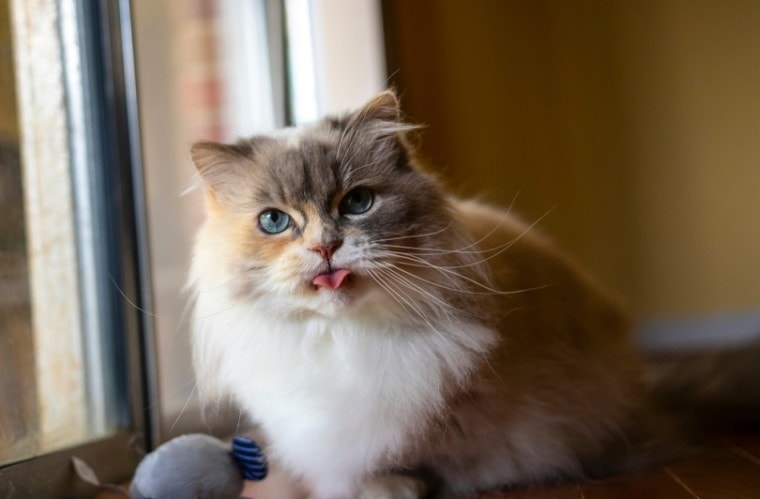
Is your kitty backed up? Yes, just like you, your feline can suffer from constipation. Though typically mild in cats, if left untreated, constipation can lead to more serious health risks. Moreover, constipation could also be an indicator of an underlying health condition. This is why it’s important to keep in mind that home remedies are not an alternative to professional medical advice. If your pet has a serious health issue, please consult your vet.
But if you want to boost your cat’s ability to do her business, homeopathic remedies might be able to help. Here are five home remedies to try to get your cat to go.
The 5 Home Remedies for Cat Constipation
1. Fiber-Rich Foods
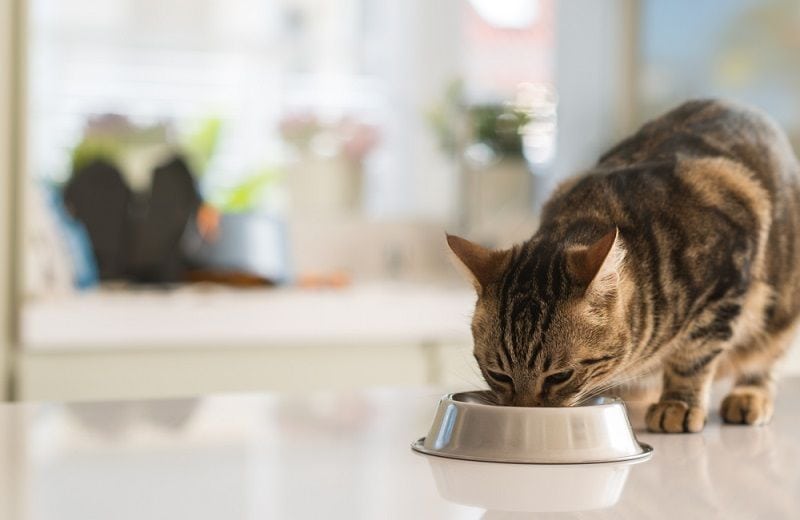
Eating a lot of roughage helps alleviate your digestive woes. Fiber-rich foods can also help your cat with her tummy troubles. And while fiber is an essential nutrient for all living things, it is often lacking in commercial cat diets.
Never, ever give your cat certain veggies, such as onions, chives, and garlic. You should also steer clear of feeding her grapes and raisins as these foods are toxic to felines.
Try giving your pet some bran cereal. Over-the-counter products, such as psyllium (marketed as Metamucil in the store) will help your cat’s digestive tract get back on track. As we mentioned earlier, consult with your vet before putting your pet on any type of treatment plan.
2. Hydration Station
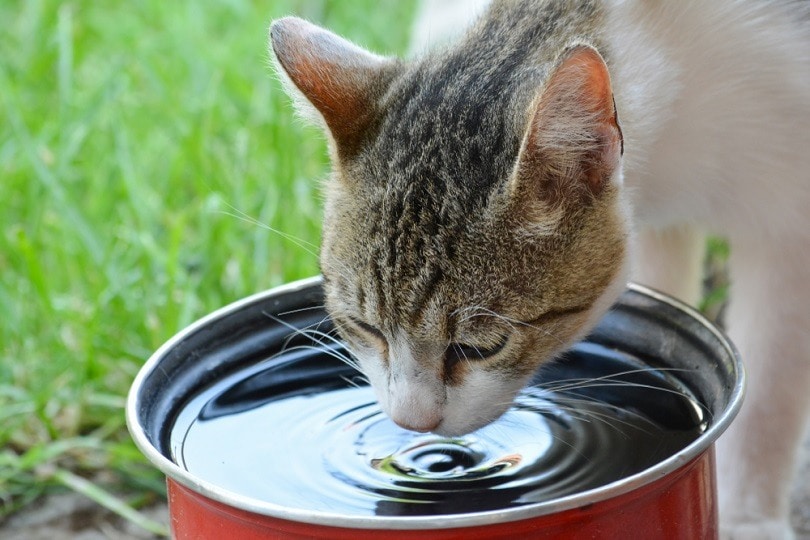
Dehydration is one of the leading causes of constipation. If your cat isn’t that great at drinking standing water, you can boost her water intake by feeding her more wet cat food. Additionally, you can entice your cat to drink by purchasing a cat water fountain or running the faucet when she’s near the kitchen sink.
3. More Exercise
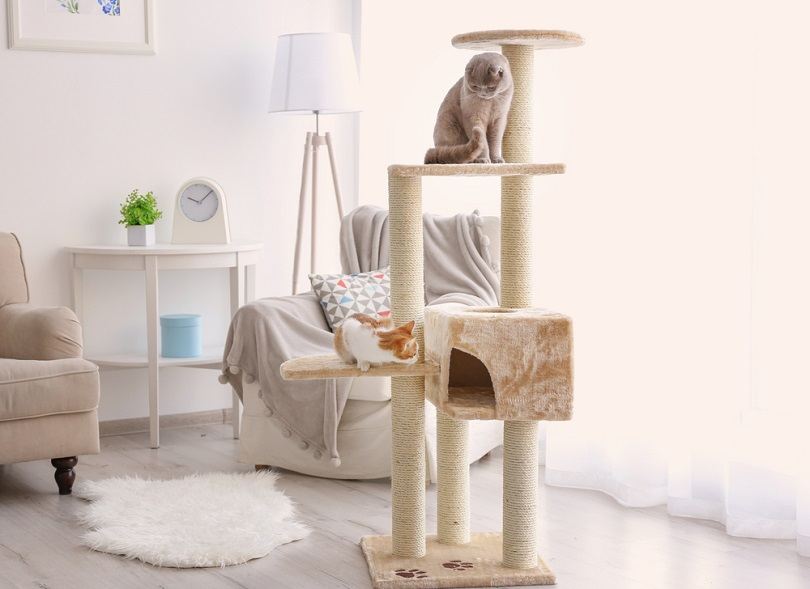
Physical activities not only get your cat moving, but it also helps to boost normal intestinal movement too. Encourage your cat to pounce and play by getting her interactive cat toys, catnip, and even a window seat so she can watch the birds outside.
4. Add More Litter Boxes
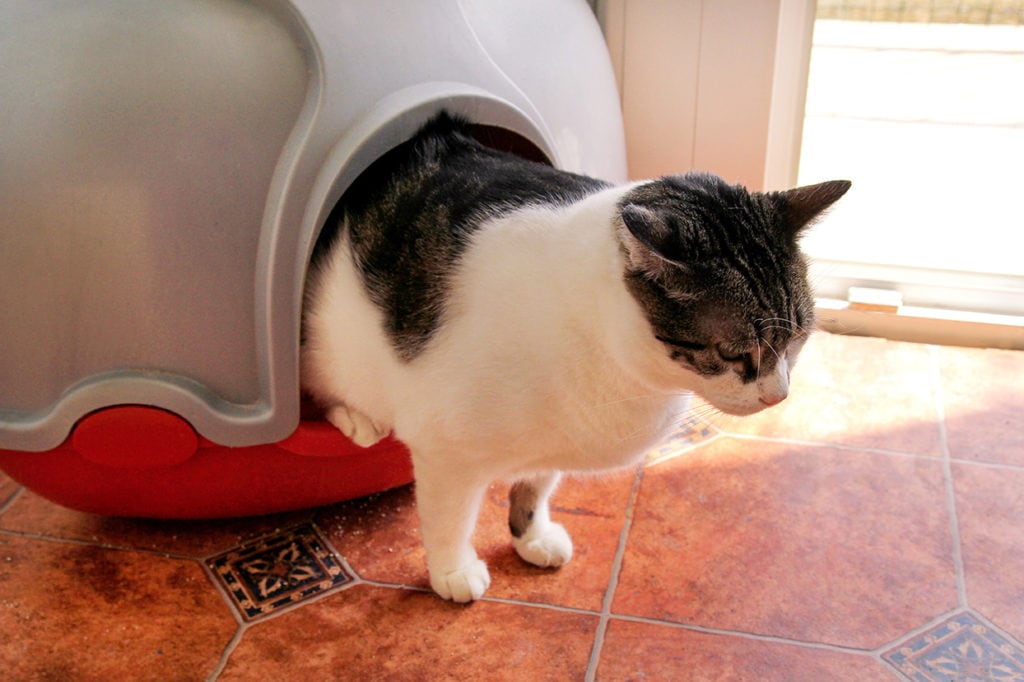
Cats are fickle creatures and will often turn up their noses at the thought of using a not-so-pristine litter box. Avoiding using the litter box could lead to constipation. If you can’t clean your litter box daily, consider adding more to your household. Keep a litter box in the basement, bathroom, or a spare bedroom so your cat always has an immaculate place to do her business.
Cleaning up after our pets is hardly the most fun part of having them. Hepper's Advanced Bio-Enzyme Cat Litter Deodorizer can help to naturally break down odors in your litter box upon contact. It's fragrance-free, biodegradable, and safe to use around your pets.
- Bio Enzymatic Cat Litter Freshener - Smart formulation uses natural ingredients eliminating cat...
- Save Money - Stuff for cats isn’t the cheapest. With this litter box odor eliminator, you’ll...
- Every Litter, Every Surface - Are you afraid this additive won’t work on your litter? Fear not!...
At Pet Keen, we've admired Hepper for many years, and decided to take a controlling ownership interest so that we could benefit from the outstanding designs of this cool company!
5. Ease Stress
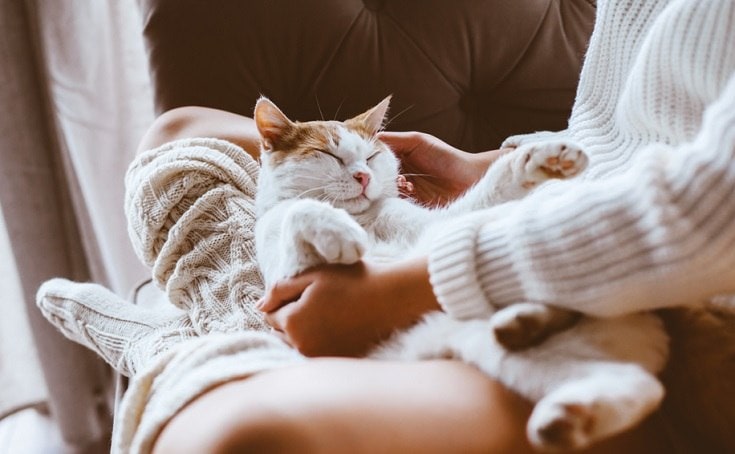
Stress and anxiety can cause constipation. If you’ve recently moved or introduced a new pet into the household, your cat could get anxious. Calming pheromones are a great, all-natural method to calm spastic kitties. Spray a pheromone solution on your pet’s favorite cat-bed or buy a diffuser.
 Causes of Cat Constipation
Causes of Cat Constipation
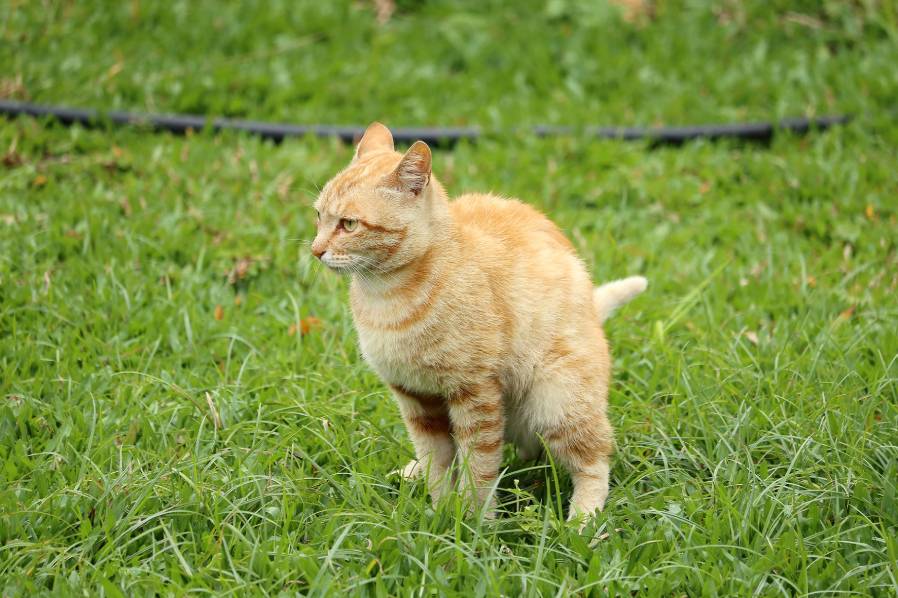
There are many possible culprits behind your cat’s constipation, including:
 Common Constipation Symptoms
Common Constipation Symptoms
Some symptoms your cat may be exhibiting if she is constipated include:
 When to See a Vet
When to See a Vet
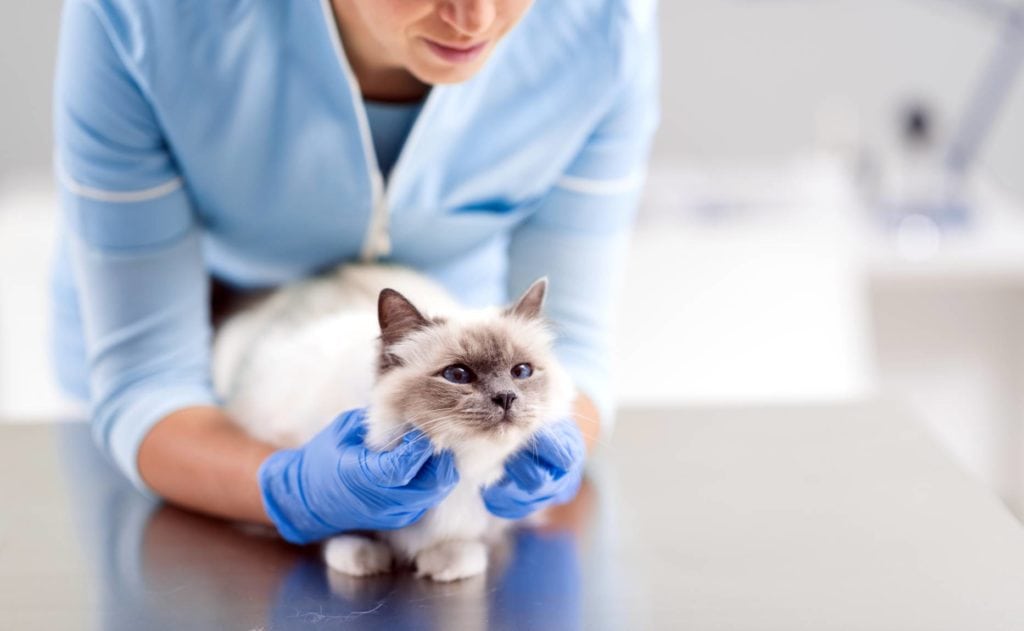
Though you should always seek professional help for any medical problem your pet might be experiencing, take your cat to the vet right away if:
Conclusion
If your cat isn’t pooping, it’s a problem. These five home remedies can help your cat get back to her regularly scheduled bathroom breaks. As always, check with your vet before you put your pet on any treatment program.
- Related read: How Do Parakeets Mate & Reproduce?
Featured Image Credit: Dave’s Domestic Cats, Shutterstock



 Causes of Cat Constipation
Causes of Cat Constipation When to See a Vet
When to See a Vet



